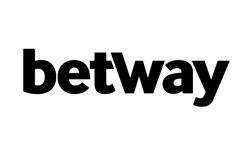The United Kingdom is a nation with a long gambling history. A quick look at a couple of the elite companies which operate on the internet from the UK would show that some have long histories which stretch back six or seven decades. Activities like sports betting, casino play, poker, and bingo have been favourite pursuits within the island nation for decades, and the only logical step for any sensible government would have been to eventually create and maintain an extremely strict yet permissible online gambling regulatory entity.
The United Kingdom Gambling Commission is a governing body that was established thanks to a 2005 Act of parliament but didn’t come into full force until the 1st of September 2007. The United Kingdom Gaming Commission is one that oversees and encompasses both the regulation of traditional brick and mortar casinos as well as remote gaming online. The foremost part of control formulated by the UKGC was to create procedures for licensing online gaming sites situated in the United Kingdom. Later on, these entities paid taxes and licensing fees in exchange to gain the right to function within the borders of the United Kingdom.
What does the UKCG do?
Before the Gambling act of 2005 came into force, there was a previous act which was the Gambling Act of 1968. This act did not foresee nor address the scenarios of the more recent online casino. Neither did it address the significant shift this would cause in the gambling industry. The Commission's primary purpose is to grant licenses to online casinos in the UK while regulating to ensure casino providers adhere to the required standards set. These measures safeguard the public by making sure casinos, while having a just house edge, remain transparent and work with the commission to challenge gambling addiction. It does this by preventing gambling from becoming a cause of crime and disorder in the United Kingdom. Protecting young children and vulnerable adults is an integral part of its reason for existence.
Before 2005, gambling entities would run operations outside of the UK's borders to evade the hassle and expense of gaining licences, while still achieving entry to its market. Moreover, included was a process for whitelisting offshore corporate bodies. This type of practice could happen if a company won a license via a gaming regulatory commission that was considered by the UKGC to be genuine. The majority of these statutory bodies were under the jurisdiction of the European Union member states.
What Protections does it offer Players?
Remote gambling companies which have a license granted by the UKGC can provide players with numerous advantages over those which choose to be rogue and operate illegally. The main argument being that registration procedures scrutinise every operator and exclude those deemed unsuitable and untrustworthy.
Online gaming sites have to keep the funds of players separately from the account that holds their operating cash. The UKGC in its role also reviews and inspect software and operator policies for impartiality. Players who have a dispute with any online gaming site can also hold the operator accountable while seeking redress. Under the UKGC, is the Advertising Standards Authority, which reviews marketing procedures used by these operators for fairness.
How does it rate compared to other authorities?
We give UKGC 10/10, Top marks compared to other Gambling Regulatory Authorities
Players who patronise casinos licensed by the UKGC can be sure of being protected from nefarious activity and numerous other issues associated with rogue casinos as UKGC is a regulatory body that takes its reputation of safeguarding players seriously. There have been many scenarios after the changes implanted in 2014 where the Commission acted to rescind a license given to an operator who broke the licensing agreement. The Commission is also straightforward when it comes to providing players seamless processes in which they can recover their funds. The procedure of arbitration also guarantees player protection by availing the opportunity to level their complaints against software companies and operators with suitable representation.
Furthermore, online casino companies are required to pay a few very hefty special licensing fees, with one being a 15% tax incurred on the gross revenue gained from gambling. While this seems a bit higher than the rates with other regulatory bodies, it is typically seen to be worth it as the draw and value of holding a UKGC license is an attractive draw to player acquisition. Consequently, not only is it tough to be awarded a casino license from the UKCG, but it is also costly and is only used by the established big brand casinos.
Current application fees
| Fee category | Annual gross gambling yield | Application Fee |
| F1 | Less than £550,000 | £4,224 |
| G1 | £550,000 or greater, up to but excluding £2 million | £10,323 |
| G2 | £2 million or greater, up to but excluding £5.5 million | £10,323 |
| H1 | £5.5 million or greater, up to but excluding £25 million | £16,235 |
| I1 | £25 million or greater, up to but excluding £100 million | £23,834 |
| J1 | £100 million or greater, up to but excluding £250 million | £38,363 |
| K1 | £250 million or greater, up to but excluding £550 million | £54,131 |
| L1 | £550 million or greater, up to but excluding £1 billion | £91,686 |
| M1 | £1 billion or greater | £91,686 |
Conclusion
The technical and industry-specific standards required of an online casino operator or indeed a software developing company to conduct any form of business or operations within the United Kingdom are some of the most stringent requirements demanded by any regulatory and licensing entity. What this ultimately means is that players can be sure that any operator with a UKGC license offers games and rules that are fair, just, and safe.










